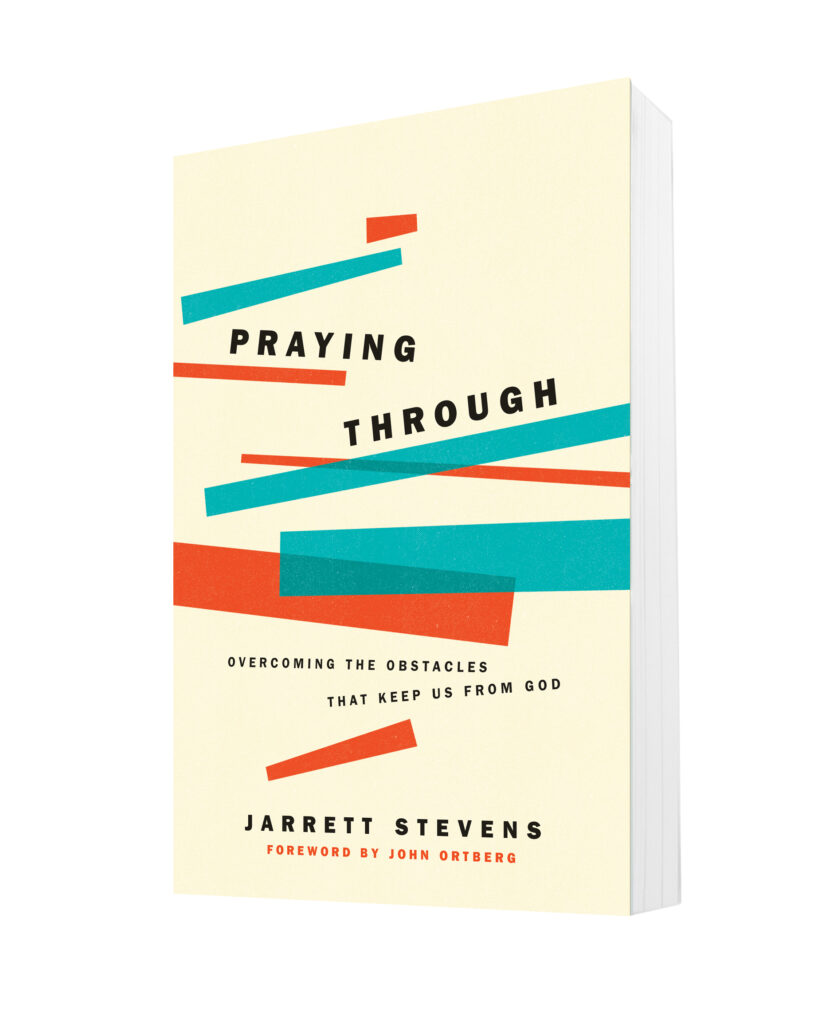Let me say this before I say anything else. If you are in a season of grief and loss, nothing I can say will take away the pain that you are experiencing. Nothing. Nor would I want to do that. Not that I want you to suffer in sadness but because as you already or will one day know, few things in life transform you more than grief. No one wants to hear that when they are grieving. No one.
I will never forget the words my wife said while we were in the hospital after having said good-bye to her father Bill, who had died unexpectedly while running a race with Jeanne’s brother, Eddie. In between uncontrollable sobs, she said, “I know that one day, God will use this. I know that I will never be the same. But right now, I just want my dad back.” She was right. She is not the same. That tragic loss forever changed her. She does not view life or death or God or family or friends the same. It transformed her. That’s what grief can do—if you let it.
Grief is the gift that nobody wants. It comes to us wrapped in sandpaper with a barbwire bow. The mystery of what’s inside has the power to grow your faith or to blow it up. I have borne witness to both. Whether you allow grief to open your heart to God or to turn your back on him, the result is the same: You will not be the same.
C.S. Lewis wrote out of personal loss that “In grief nothing ‘stays put.’”[i] Whether you are grieving the loss of someone you love, the death of a dream, or the state of our nation, when you fully give yourself over to grief, when you really do the work that grief requires, you come out as someone different on the other side. Someone deeper. Someone more soulful. Through loss, you find something new in yourself. Something that simply would not be true had you not chosen to grieve.
The question then, is: Will you grieve with God? Will you invite God in rather than shutting him out? Will you trust him to guide you through this valley of the shadow of death (Psalm 23:4)? If your answer is yes, then you are ready to enter the deeper journey. You are ready to walk the often narrow, ever winding path of transformation that is only available to those willing to grieve, to those who are willing to walk with rather than away from God.
I have no words that can take away your grief, but I would like to offer a way to transform your grief. A way of praying through your grief that allows for hope and heartache to cohabitate. A way of praying that is both raw and redemptive.
Grief comes to us all, regardless of whether it’s invited. And let’s be honest, who invites grief anyway? Grief first came to me when I was eight years old, when I lost Maynard. I loved Maynard. We were best friends. He lived with me for a season. Maynard was my parakeet. And what a good parakeet he was! He would sit on my finger or rest on my shoulder, and only tried to fly away twice. He was the first pet that I was truly responsible for. He stayed in my room in a cage right by the window (in hindsight, I suppose this was sort of cruel). All day, he would watch out the window as birds of all kinds would fly by and mock him with their freedom. But Maynard was (mostly) loyal, nonetheless. One Sunday morning, I left for church, leaving the window open for Maynard to connect with his bird brethren while I was gone. What I didn’t know was that we’d had our last time together. You see, during this season, Northern California was facing a crisis: an infestation of Mediterranean fruit flies had broken out in our area. To treat this threat, helicopters were regularly flying by, spraying malathion (see: kill). Because of the strength of this industrial pesticide, residents were encouraged to keep their windows closed during these area-wide sprayings. I didn’t get that memo. Neither did Maynard. When I came home from church, I found Maynard at the bottom of his cage, “resting,” as my sister tried to convince me. I was heartbroken. Inconsolable. How could a good God allow this to happen? We buried Maynard that afternoon, and I spent the next seven days sitting shiva. Within a year, I had moved on from parakeets to tropical fish—all of which eventually died, as well.
The point is that grief finds you. Sooner for some than for others. More for some than for others. But eventually, it finds us all, which is why it’s so important that you know what to do when grief works its way to you. As a pastor, I’ve had to perform more funerals than I care to count. One funeral is more than enough. The very first funeral I performed was when I was twenty-eight years old. It was for a man that I had never met. His wife had been coming to our church and loved listening to me preach. She would bring her three- and five-year-old sons with her regularly, but her husband rarely came. He had been in and out of rehab, suffering from a serious drug addiction which had cost him several jobs and had forced them to move more than once. He had finally gotten back on his feet, was out of rehab, and was working a night shift when he relapsed. One night at work, he overdosed and was gone before anyone even knew or had a chance to say good-bye. As I stood there in that funeral home with only a handful of people in attendance, doing my best to offer words of comfort and hope to a wife and mother who had been to hell and back multiple times, I knew that this woman and her boys would never be the same.

I have led funerals for friends, family members, and people I barely knew. It doesn’t matter whose funeral it is, what the cause of death is, or whether people saw it coming, one thing remains the same: Grief places a fork in the middle of the road that your life was on. Which way you go is entirely up to you. I’ve seen people’s lives take all kinds of routes through and around grief. Some people embrace it. Some people avoid it. Some people stay stuck in it. But one thing is for certain: You cannot continue to go the way you were going. The road of the life that you once knew is no longer available to you. I wish it weren’t so. But this is how grief works. It reroutes and redirects. Lewis was right—nothing stays put.
If you’re willing to walk grief’s new path (albeit a longer and lonelier path than we would ever want), there is a comfort in knowing that you don’t have to walk it alone. God wants to walk with you. To carry you through the parts where your will is waning and hope seems all but lost. Right through the valley of the shadow of death. He wants to lead you to new places where that old road simply could not lead you—but you must be willing to walk, work, and pray your way through grief with God to get there.
You’ve been reading with Jarrett Stevens from his new book Praying Through: Overcoming the Obstacles that Keep Us from God. Keep reading with a FREE EXCERPT of chapter 1 here. You can also take the Seasons of the Soul quiz at jarrettstevens.com to learn what season of prayer you are in right now.
 [i] C. S. Lewis, A Grief Observed (New York: HarperOne, 1994), 56.
[i] C. S. Lewis, A Grief Observed (New York: HarperOne, 1994), 56.

